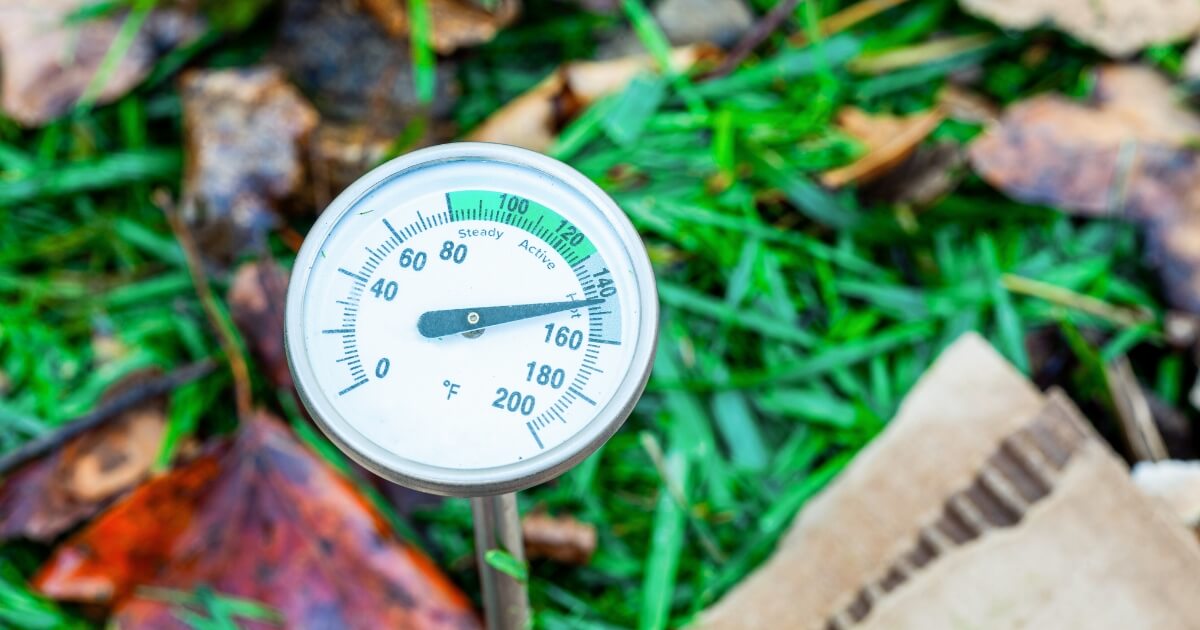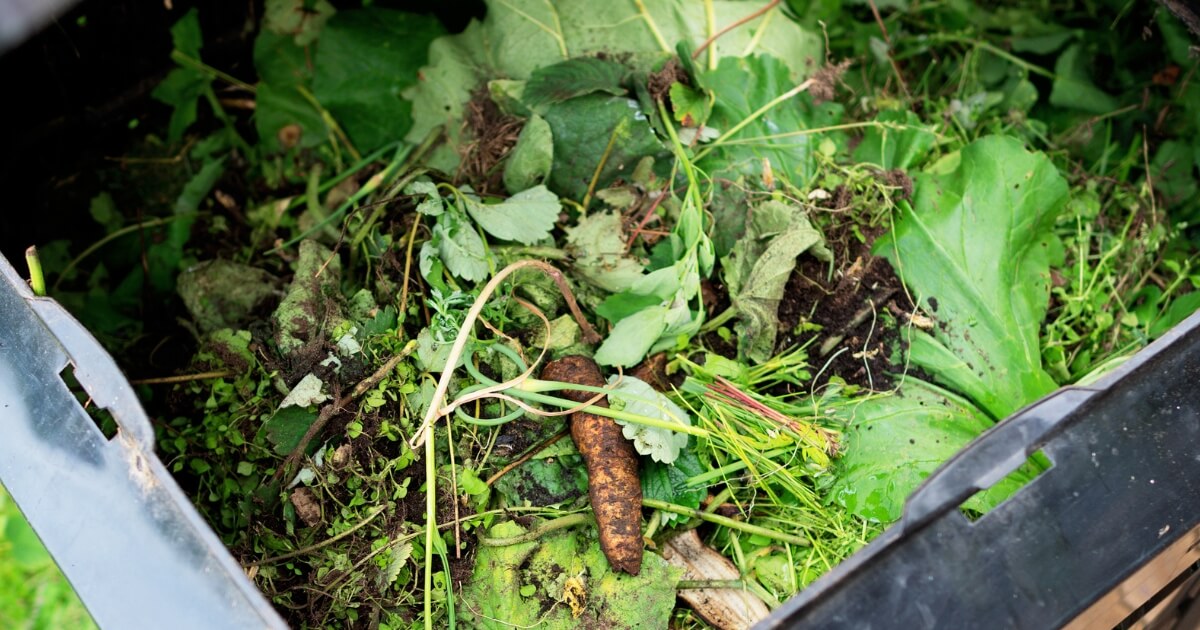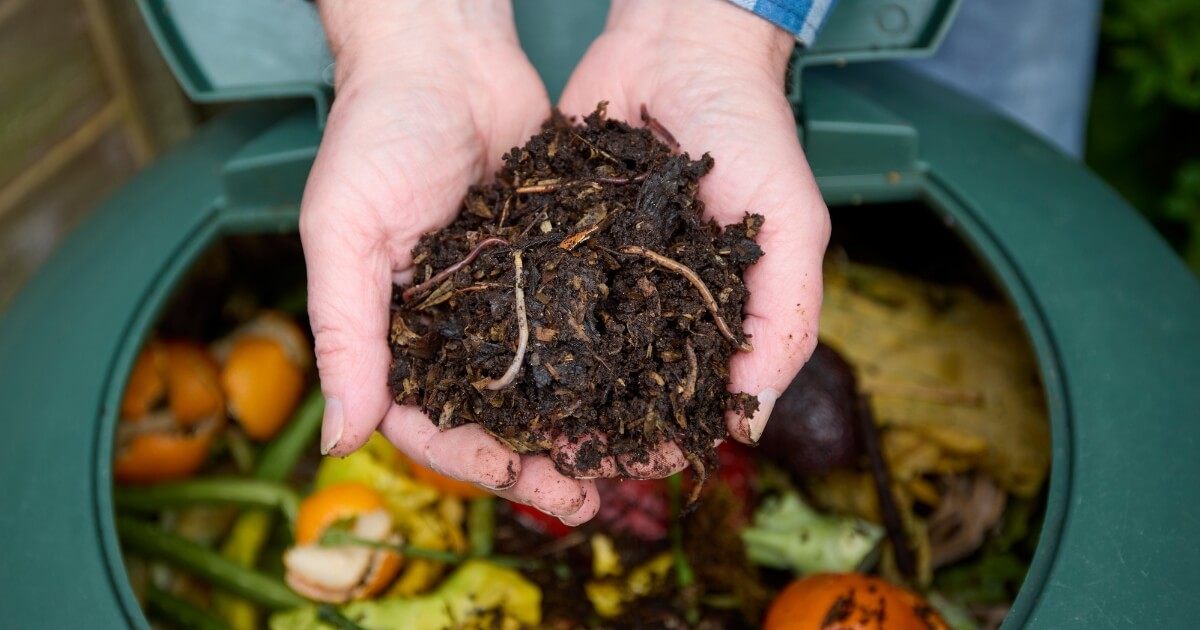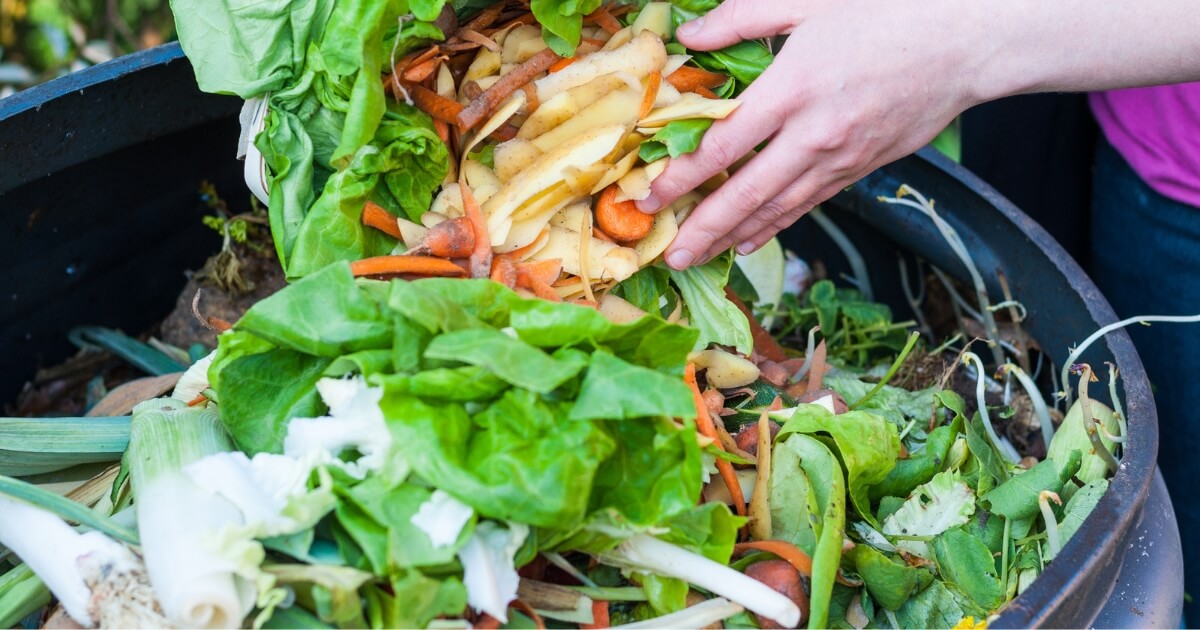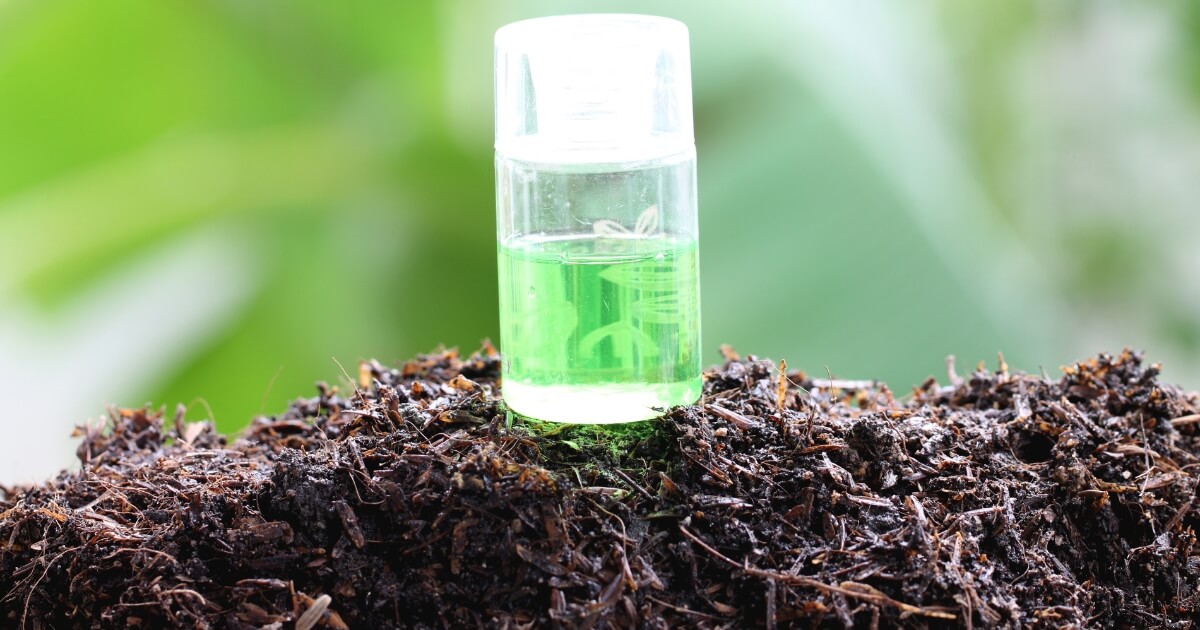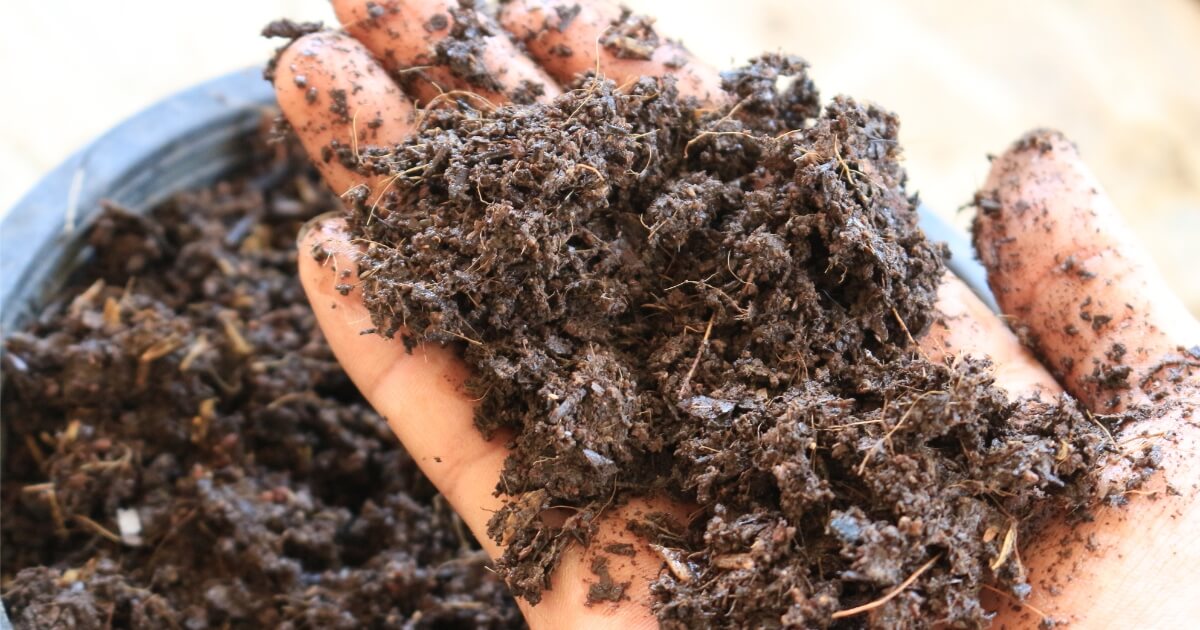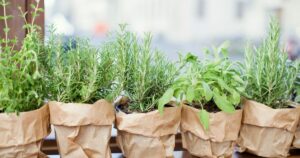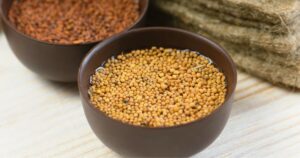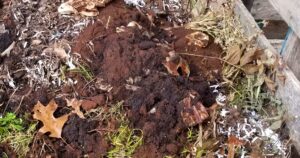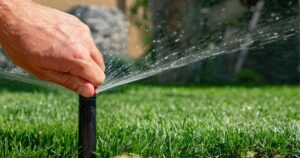Compost is an excellent soil amendment, full of nutrients, organic matter, and good microbes, but there are instances where too much compost can harm your plant’s development.
A good rule is never to exceed a 50-percent ratio of compost to the soil, but keeping the compost level between 30 to 40 percent is much safer.
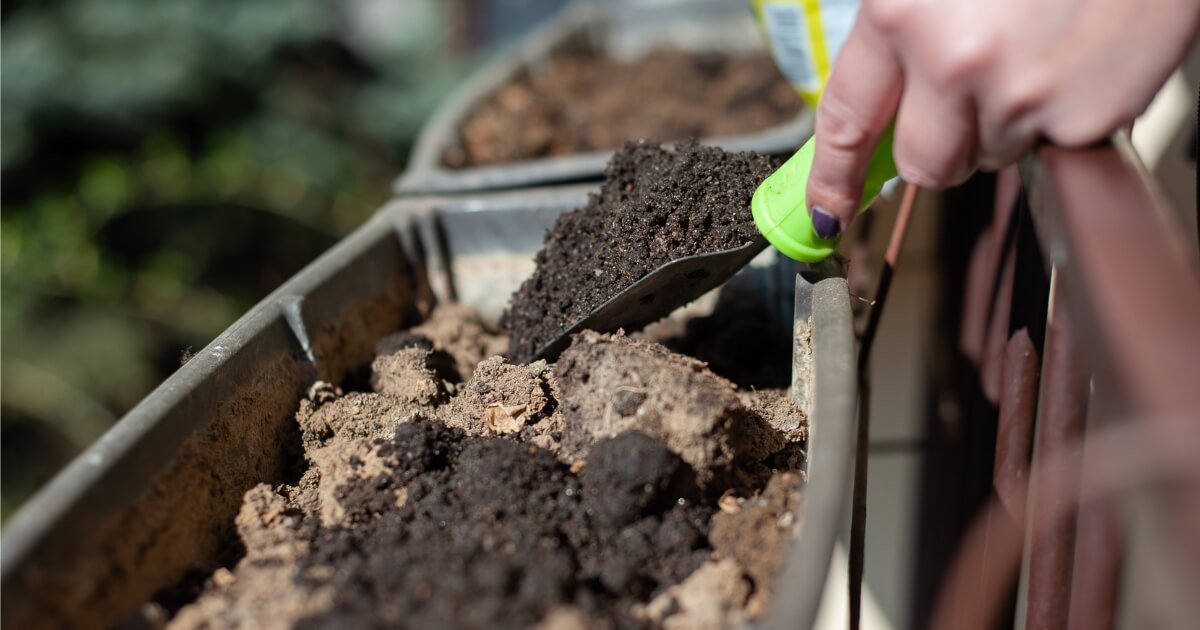
If you’ve already added too much, don’t worry because I’ll explain ways to fix overly composted soil so you can maintain a healthy garden.
Effects of Excessive Phosphorus on Plant Growth
Phosphorus is necessary for plants to maintain cell division, perform respiration and photosynthesis, grow roots, flower, and form fruits and seeds.
Stunted development is the most significant sign of excessive phosphorus from too much compost. Why does this happen?
Too much phosphorus in the soil surrounding plants inhibits vital nitrogen uptake, prevents the growth of beneficial mycorrhizal fungi, and locks up other critical nutrients like iron, calcium, and zinc.
When phosphorus binds with other minerals in the soil, they become difficult to dissolve in water. As a result, your plants will struggle to absorb these compounds unless the soil pH is between 6 and 7.5 and growth is affected.
A sign of excess soil phosphorus stopping plants from uptaking zinc is the bleaching of foliage or stems, while iron deficiency causes leaf veins to be yellow. Calcium deficiency causes problems such as blossom end rot in tomato plants.
Effects of Excessive Nitrogen on Plant Growth
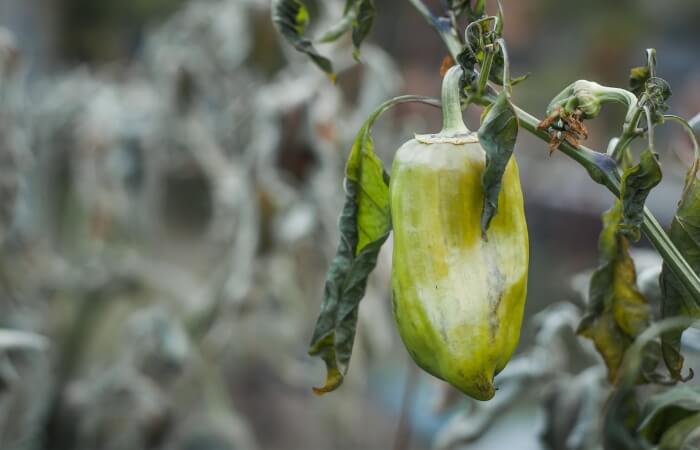
Nitrogen overload from adding too much compost to plants results in unusually quick growth, followed by the leaves and stems shriveling up and dying.
In most instances, the organic matter in compost takes many months to decompose completely, allowing the slow and safe release of nitrogen.
However, if weather conditions are rainier than average or you’re overwatering your garden, the compost breaks down faster and causes excessive nitrogen issues.
As with phosphorus, adding extra nitrogen (nitrates) to rivers or lakes upsets the natural balance of aquatic plants and wildlife.
Too much nitrogen will initially spur heavy growth of algae and weeds, then choke off all life as the fish and plants suffocate from lack of oxygen and sunlight.
Signs Of Excessive Compost Use
You’ll know you are adding too much compost to your garden when you see negative effects on plant growth.
The signs include:
- Sudden wilting even when watering regularly
- Yellowing or scorching of plant foliage
- Lackluster blooms or fruit/vegetable production
- Disease or pest issues
- Dry surface soil
As I explained above, many soil issues that result from excessive nitrogen or phosphorus levels will stunt plant development or cause damage.
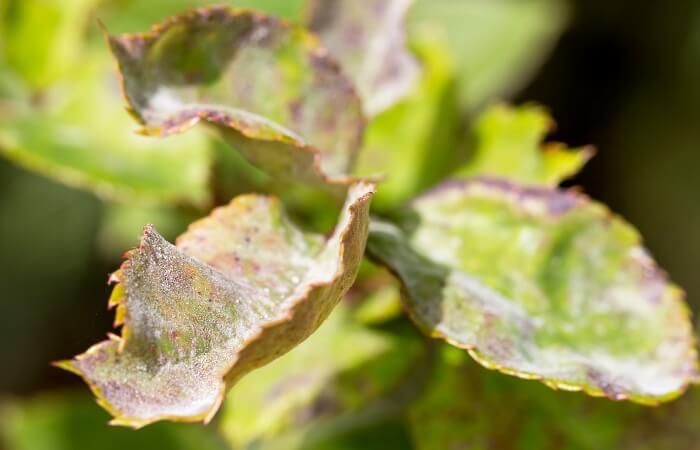
The lack of critical mycorrhizal fungi in the soil allows harmful bacteria and fungi to flourish, further damaging your garden plants and inviting pests to take over.
Organic matter in compost will eventually break down into soluble salts.
Soluble salt elements include:
- Calcium
- Magnesium
- Ammonium
- Nitrate
- Sodium
- Potassium
- Chloride
- Sulfate Ions
All these elements are a part of compost, so salt toxicity can happen if you overapply compost to the soil around plants.
One reason soluble salt build-up in the soil is harmful to plants is that it causes roots to burn, which reduces water and nutrient absorption and the plant foliage will wilt or drop.
If the salt levels in the soil around the root system exceed the salt concentration inside the plant cells, it effectively shuts down the root’s ability to intake water, killing the plant.
Dumping compost on top of existing garden soil and not tilling it in reduces its ability to hold moisture. A dry, crusty top layer of compost can prevent water from passing through the material to reach plant roots, which can cause plant dehydration.
Correcting Over-Composted Soil
If you believe too much compost in your garden is hurting your plants, here are ways to fix the issue:
Stop Adding Compost
Stop adding fresh compost or any type of fertilizers to the garden until soil conditions stabilize. Be aware that it can take a year or more to remove high levels of certain nutrients from garden soil.
Remove Excess Compost
The quickest fix is to dig out about half the soil and replace it with less nutrient-dense topsoil and till well. Doing this gives your plants time to recover from the constant influx of phosphorus, nitrogen, and other elements that cause salts to build up.
Grow Cover Crops To Rebalance Your Soil
Planting a cover crop is another solution to help rebalance soil conditions so plants can grow to their best potential.
Triticale is a good cover crop you can use to reduce the effects of compost-related plant issues. Triticale is a hungry plant that will draw out lots of nitrogen, phosphorus, and other minerals from the soil as it grows. You can use the harvest to feed livestock or add it to home recipes for bread or other meals.
Test Your Soil pH Level
Use a soil pH test kit to ensure the levels are between the ideal 6.0 to 7.0 for plants to uptake the extra nutrients in the soil so they don’t build up and stifle root function. You can add a lime product if the soil is too acidic (under 6.0 pH) or sulfur to lower the pH above 7.0 to 7.5.
Flood Your Garden With Water
You can try to wash away excessive soluble salts from compost by flooding the plot with water. The key is to soak the area well enough to push the salts deep into the ground away from plant roots.
However, rinsing the salts and other minerals into nearby waterways is a genuine environmental concern, so it’s always best to only use this method as a last resort.
